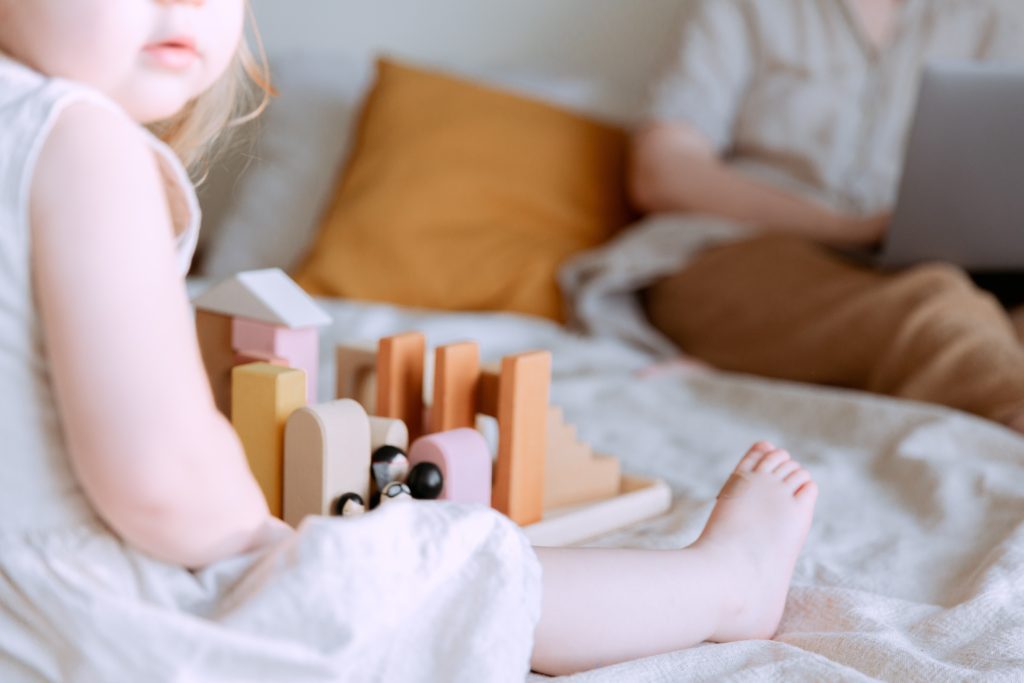
Talking about feelings with little children will make them happy
When we talk about feelings with little children, we teach them to recognize them and communicate so we can help them cope. Talking about emotions will teach them to have empathy, which will improve their social relationships, which will make them happy.
Therefore, talking about feelings will make them happy.
When should we talk about feelings with little children?
The best time to discuss feelings and coping mechanisms is when they are calm and happy. If they had a tantrum in a friend’s house, don’t talk to them on the way home in the car. Wait until you can look them in the eyes and talk calmly.
You can use nighttime to discuss how the day went for both of you, tell them what parts of your day you liked or didn’t like, and ask them about their day. Create a habit of it.
What was the best thing about today? How did it make you feel? What was a think you didn’t like? How did it make you feel? How can we make it better next time?
Also, emotions are running through us at all times, and you should be able to name your emotions during a normal day, just as you teach colors to a baby pointing and naming everyday objects day after day.
Where should we talk about feelings with little children?

Choose a place that is familiar to them, where they feel safe and comfortable. It doesn’t have to be home, but I guess home is the most obvious place. If you need to address a specific situation, do it in private.
How should we talk about feelings with little children?
Identify the emotions
Just like children learn to identify animals, you can teach them to identify feelings. When you as a parent are feeling happy and playful, tell them what you are feeling and why.
I am very happy because I like playing outside with you.
When you are upset and a little too harsh, you can say:
I’m sorry I was too harsh. I was upset because I didn’t like to clean the mess you created but I was wrong to talk to you in my angry voice.
When they are having a good time, you can help them name their feelings.
I see you look very happy, are you enjoying playing with grandma?
and when they are not, you can try to offer them a solution.
You look sad. Are you missing your brother? Do you want us to make him a snack for when he comes back from school?
It is a good idea to ask them and not completely assume what they are feeling and why. You should help them so that they can tell you. You know them well, but they are the only ones in their head.
You could also use a feelings wheel and make activities around it to help them identify all of their feelings.
Identify the cause of those emotions

Sometimes we have days or weeks where we are feeling a certain way.
These things will put your child in a bad mood:
- They are hungry.
- They are tired.
- They feel lonely.
- They are bored.
- They are overstimulated.
And these things will put them in a good mood:
- Being physically comfortable.
- Having enough rest.
- Having friends around.
- Having enough stimulation.
- Having enough time to wind down.
Pay attention to your routine and how they react to it and soon enough you will see the big emotions coming beforehand and you will e able to help them through.
Toddlers need you to provide most of what they need to be in a good mood. But as children get older, you can teach your kids how to identify what is making them feel cranky and how they can get out of that feeling.
Also, they can learn how to be bored, sad, angry… but OK. Because it is OK to have negative feelings. Feelings don’t usually stay forever. It’s OK to feel them and then move on.
Learn how to cope with emotions
Talking, singing, running, counting, painting, breathing, exercising, stretching, going outside, changing the scene.
Encourage creative outlets like music, writing, and painting. It will help them put their emotion somewhere other than their little brain.
Use books and storytelling to help them relate to the characters and situations.
Pretend play is also a fantastic way to let things out without fear of judgment. There is a technique in therapy with little children that involves playing with a doll house.
Go to therapy if you can afford it
I realize not everyone can go to therapy. Not everyone has the time or the money. But if you can afford it, therapy can be fantastic. Worst case, it will give you a place to vent without fear of judgment.
And for your child as well. Seek professional help if needed. If they are consistently struggling with managing their emotions or if there are too many of the negative ones, get help for them.
This post may have some affiliate links. This means if you click on the link and purchase the item, I will receive a commission at no extra cost to you. All opinions are my own.